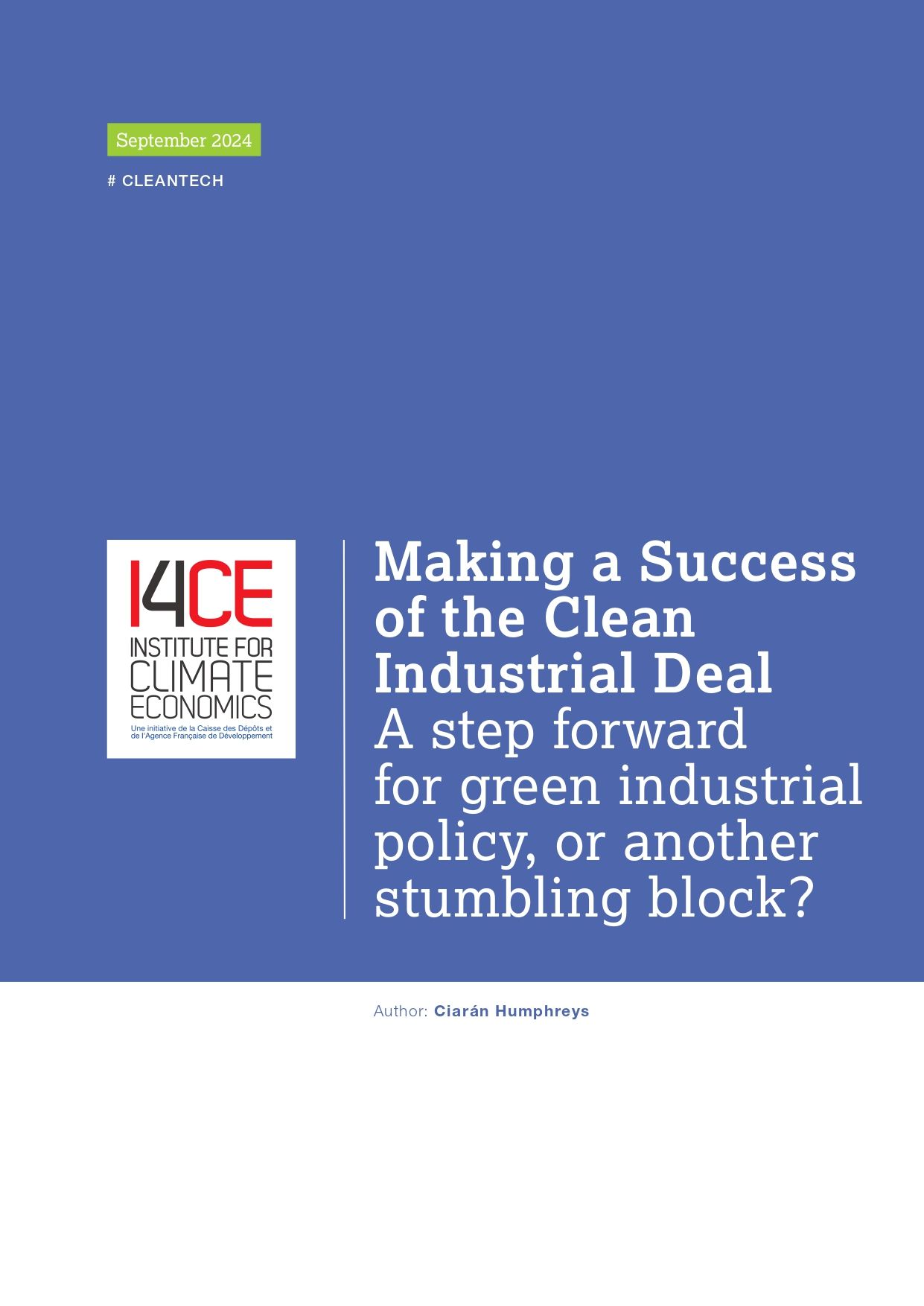Making a Success of the Clean Industrial Deal: A step forward for green industrial policy, or another stumbling block?
Context. The world’s largest economies are turning towards green industrial policy to support their cleantech manufacturing to accelerate their decarbonisation, competitiveness, and economic resilience. In this cleantech race, the EU has several disadvantages, including higher costs of energy and labour, a less dynamic investment environment, and the impacts of the Inflation Reduction Act and Made in China 2025.
The EU’s green industrial policy has room for improvement. Repeated efforts to launch measures to support cleantech manufacturing have left Europe with a patchwork of policies, but no clear strategy. Meanwhile, public finance is not adequately targeted or designed to meet the needs of the market. The latest attempt, the Green Deal Industrial Plan, has not improved this picture.
The Clean Industrial Deal risks repeating the same mistakes. As part of her successful bid for re-election as Commission President, Ursula von der Leyen has announced a Clean Industrial Deal. The package contains a wide range of measures, many only loosely connected to green industrialisation. While there are encouraging elements in the package, there is a risk that the EU simply adds another layer to an already complex architecture.
The EU should build on what works. The EU has the tools and structures it needs for an effective green industrial policy. The Clean Industrial Dialogues are a strong model of forums for collaboration with the private sector, which can be deepened. The Innovation Fund and EIB support are examples of best practices to build upon. Finally, regulatory tools such as Sustainability and Resilience criteria, and financing mechanisms like fixed premium auctions and loan guarantees, can be better utilised.
To make a success of the Clean Industrial Deal, the Commission should:
- Be clear on the paramount objective of the Clean Industrial Deal – supporting Europe’s decarbonisation.
- Create a strengthened governance for the Clean Industrial Deal and Green Deal Industrial Plan, with structured collaboration between the Executive Vice-President for Prosperity and Industrial Strategy and the Executive Vice-President for a Clean, Just, and Competitive Transition. Make better use of the Clean Industrial Dialogues and European Industrial Alliances to ensure that industrial policy aligns with the needs of the sector.
- The Clean Industrial Deal should set a new benchmark for effective EU policymaking. In the next mandate, introduce measures strengthening Sustainability and Resilience criteria in public procurement and improving the Single Market for cleantech.
- Launch a Cleantech Investment Plan, primarily directed by the EIB and Innovation Fund, to provide targeted support to cleantech manufacturing.
- Support Member States in investing in European competitiveness, by allowing for flexibilities under the EU’s fiscal governance framework and using unspent RRF (Recovery and Resilience Facility) funds to support cleantech manufacturing

